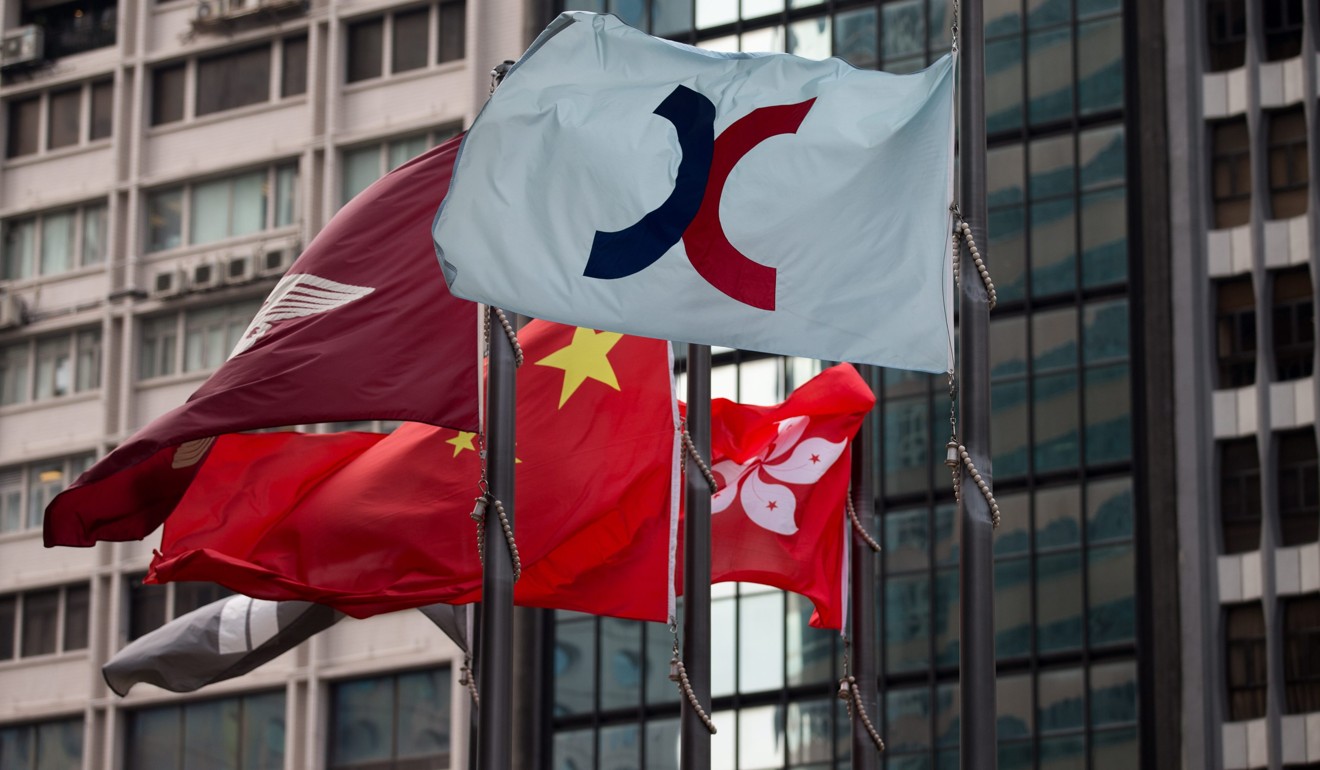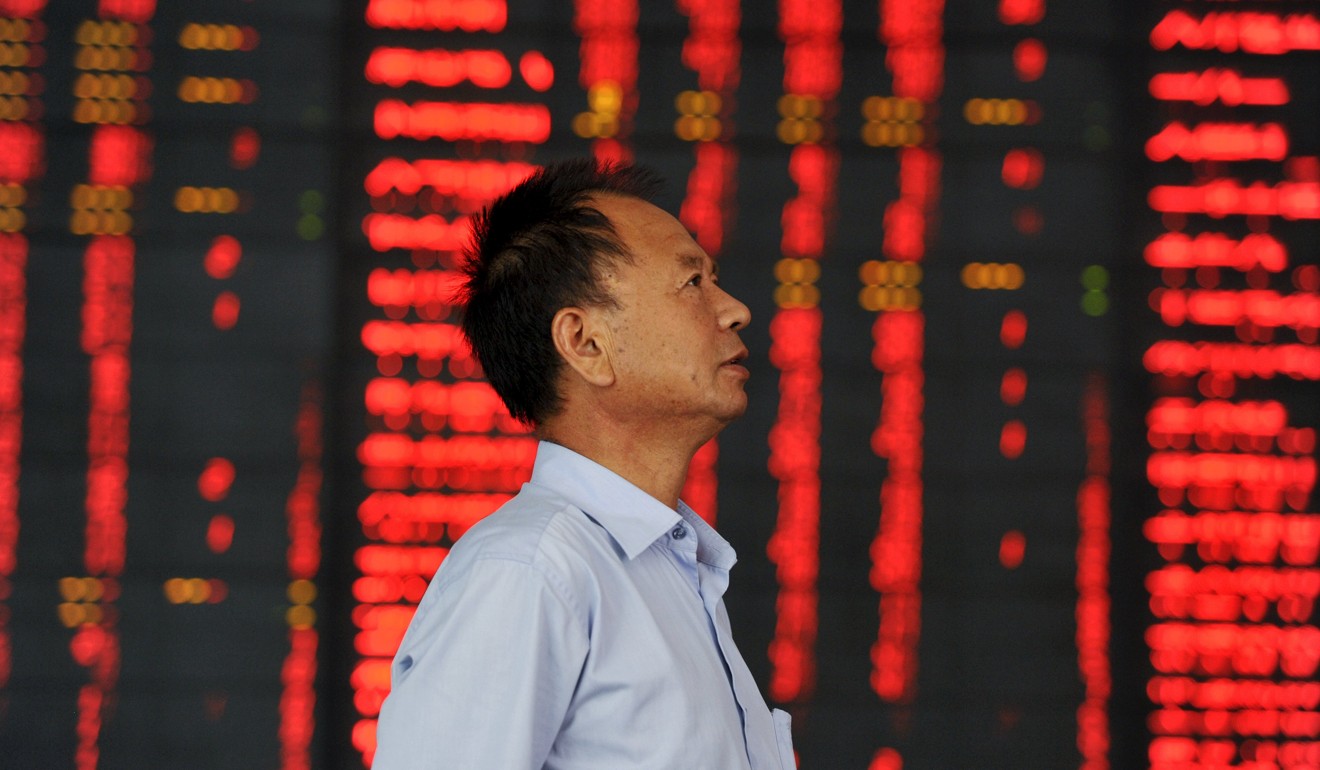
Will unlocking US$391b of non-tradeable Chinese H shares spur a bull run in Hong Kong?
Two Hong Kong-listed Chinese firms will be picked for the trial programme to float non-tradeable H shares. A similar scheme for mainland Chinese A shares in 2005 led to a two-year bull run
When the Chinese regulators started a programme to float a massive number of non-tradeable shares in mainland-listed firms in 2005, the benchmark Shanghai Composite Index jumped by six folds in the following two years. Now more than a decade later, a similar shake-up is likely to hit Hong Kong’s stock market soon.
Two Hong Kong-listed Chinese companies, including ZhongAn Online P&C Insurance, will be chosen by the State Council to participate in the trial programme, the mainland’s Caixin magazine reported last week. In the trial, the shares held by substantial shareholders, currently unavailable for public trading due to the regulatory barrier, will be converted into ordinary shares that can be sold and bought on the secondary market.
While pessimists argue that the overhaul sets the stage for heavy insider selling from these firms by significantly increasing potential stock supply, investors including HSBC Jintrust Fund Management and East Capital see buying opportunities arising from it. The move would add further impetus to Hong Kong stocks – where the benchmark index is already the best performer among Asia’s major markets this year with a 32 per cent gain – by motivating big shareholders to do more to bolster share prices to eventually align their interests with public investors’, said these investors.

“It’ll also boost the liquidity of relevant stocks and let them enjoy liquidity premiums.”
Cheng said he would continue buying shares of Hong Kong-listed Chinese companies as policymakers release more dividends through reform measures and the valuation of the stocks is still attractive.
If the trial is successful – where all the outstanding shares become free-floating – it could be expanded to all H-share companies, or China-incorporated firms, trading in Hong Kong. There are 250 such companies including PICC Property & Casualty and China Longyuan Power Group. China Mobile and the other 157 red-chip stocks, or Hong Kong-listed mainland Chinese companies that are registered overseas, are not subject to the shake-up.
“Full circulation may increase supply significantly,” said Karine Hirn, the Hong Kong-based partner with East Capital with US$3 billion in asset under management.
Full circulation will prompt shareholders and listed companies to pay more attention to stock prices ... take measures in response to what the market cares about
“But on the positive side, that would mean more progress with capital market reforms and potentially can contribute to SOE [state-owned enterprise] reforms.”
Regulatory concerns that a full free-floating stock run the risks of diluting the Chinese ownership in H-share companies have kept the stocks non-tradeable and controlled by big shareholders.
Eighty per cent of ZhongAn stocks cannot be freely traded on the market and the shares are in the hands of major shareholders, including Ant Financial and Tencent Holdings. Similarly, 77 per cent shares of China Telecom, the country’s biggest fixed phone line operator, are non-tradeable and held by two state entities.
As China becomes increasingly integrated into the global markets, with the mainland equities set to join MSCI’s benchmarks next year and foreign investors accessing yuan-traded shares via the exchange links, policymakers are more determined than ever to unshackle the uneven share structure of H-share firms.
The aggregate non-tradeable shares of H-share companies is valued at 2.6 trillion yuan (US$391.6 billion) based on the closing prices of the stocks last week, and would boost the total value of the Hong Kong market by 4.9 per cent if they were fully released, according to Ping An Securities.
The brokerage has also recommended H-share companies with high percentages of non-tradeable stocks in outstanding shares, such as China Telecom, Postal Savings Bank of China and nuclear power producer CGN Power, arguing that their big shareholders will deliver better profits to boost stock prices.

But on the positive side, that would mean more progress with capital market reforms and potentially can contribute to SOE [state-owned enterprise] reforms
The mainland stock market underwent a similar overhaul of share structure in 2005, spurring a two-year bull market that drove the Shanghai Composite up from 998 to 6,124. Major shareholders of all publicly-traded firms compensated small investors with stocks or cash in exchange for the right to trade their non-tradeable shares, mostly state-owned, freely on the secondary market.
Details of the programme to unlock non-tradeable H-shares remain unavailable and it is also unclear whether public investors will be compensated for letting major shareholders’ big chunks of shares float freely on the market. Doing so in theory is likely to pressure current share prices, even though some see it as a chance for H shares to narrow the price gap with their mainland equities that are about 30 per cent more expensive.
“It’s positive for Hong Kong. For a long time, the lack of control premium is one of the reasons H shares has been trading at a discount to their A-share counterparts,” said Hong Hao, managing director at Bocom International Holdings in Hong Kong. “When in full flow, valuation should rise, pushing the overall index higher.”

